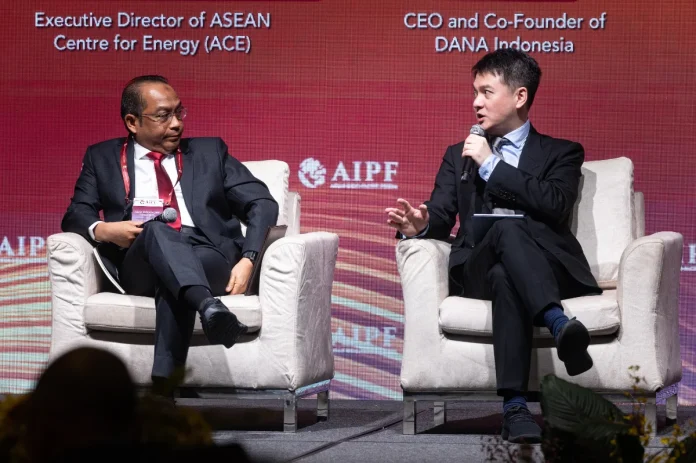ASEAN payment links and QR codes will unlock a US$1.2 trillion digital economy, helping MSMEs access 700 million consumers across Southeast Asia.
KUALA LUMPUR: Closer digital payment connectivity across ASEAN is expected to unlock new growth opportunities for micro, small and medium enterprises and strengthen regional economic integration.
DANA Indonesia Chief Executive Officer and Co-founder Vince Iswara said regional payment links, including a common QR code standard and Project Nexus, will expand cross-border transactions.
This will make it easier for consumers and MSMEs to trade and travel across ASEAN.
“The digital economy across ASEAN already stands at about US$1.2 trillion and that’s just from the ASEAN-6 countries,” he explained at the ASEAN Indo-Pacific Forum.
“If we include the rest of ASEAN, it would be even larger, with far greater potential.”
He noted that without regional connectivity, every country still operates its own domestic system.
Vince said interoperability between payment platforms will help unlock a market of over 700 million consumers.
This gives MSMEs direct access to buyers beyond their home country.
“MSMEs contribute between 40% and 60% of GDP in most ASEAN economies and employ the majority of the workforce,” he remarked.
“Seamless payment systems are essential to integrate them into regional value chains.”
Citing ASEAN tourism flows, Vince said 143 million people travelled within the region in 2024.
About 44% were intra-ASEAN travellers, showing clear benefits of frictionless QR payments in local currencies.
He noted that digital payments are more environmentally friendly compared with cash-based transactions.
They reduce the energy footprint and logistical waste associated with physical money handling.
However, Vince warned that deeper connectivity requires stronger cybersecurity cooperation.
Cross-border digital ecosystems are increasingly targeted by scams and fraud.
“By collaborating among central banks and fintech players, and by standardising security responses, ASEAN can protect its ecosystem,” he said.
The ASEAN regional payment connectivity initiative launched in 2022 currently links QR systems among Indonesia, Malaysia, Thailand, Singapore and the Philippines.
Expansion is planned to other member states and partners including Japan, Korea, India and China.
The initiative aligns with the ASEAN Digital Economy Framework Agreement targeted for conclusion in 2025.
This aims to deepen regional digital integration and enhance cross-border trade, tourism and financial inclusion.
The ASEAN Indo-Pacific Forum runs concurrently with the 47th ASEAN Summit at the Kuala Lumpur Convention Centre.
It serves as a platform for governments and the private sector to advance sustainable and inclusive growth across the Indo-Pacific region. – Bernama








